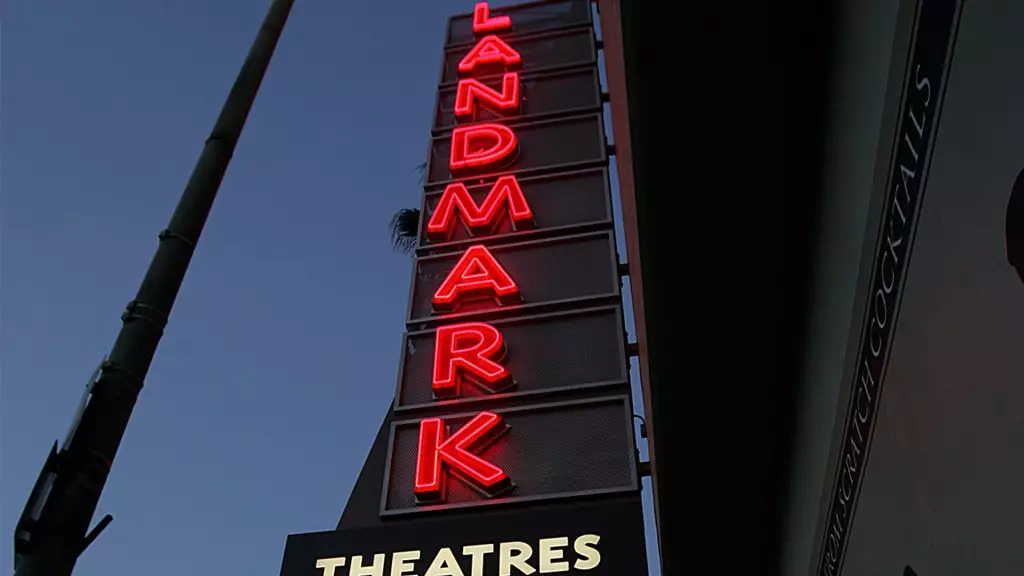Landmark Theatres, once a cornerstone of arthouse cinema in the United States, is currently ensnared in a web of financial turmoil, propelled by a perfect storm of circumstances. The effects of the COVID-19 pandemic, coupled with rising interest rates and recent Hollywood strikes, have compounded Landmark’s already precarious situation, leading to a staggering decline in its worth—estimated in the hundreds of millions of dollars. This article delves into the context and implications of these developments, particularly focusing on key figures involved, the economic landscape, and the potential future for Landmark.
At the center of Landmark’s financial woes is Charles Cohen, the owner of the theater chain, whose recent deposition has revealed grim realities about the company’s finances. As disclosed in legal filings with Fortress Credit Corp, Cohen’s ownership has led to significant defaults on loans that now threaten the operation of Landmark itself. A ruling from New York State Supreme Court has mandated that Cohen must auction off Landmark’s assets to satisfy a loan default, a move that underscores the dire financial conditions the chain is currently facing.
The judicial decision not only places Landmark in a precarious position but also holds Cohen personally liable for a staggering $187 million loan guarantee adjacent to the auction. This dual liability compounds the pressure on Cohen, as he strives to navigate through this legal labyrinth. The looming auction date set for November 8 adds a layer of urgency, compelling both parties to seek an amicable resolution—a prospect that remains uncertain.
Recent reports from Fortress indicate that Cohen may have taken steps to shield his assets from the inevitable seizure, leading to further complications. Allegations include the transfer of over $70 million in assets into new ownership structures after the initiation of litigation—a troubling maneuver that has prompted Fortress to seek judicial action to prevent any asset dissipation. Such actions not only reflect Cohen’s desperate attempts to retain wealth but also raise ethical questions regarding financial management in such a high-stakes environment.
The nature of these asset transfers, including substantial properties and luxury items, is telling of a broader trend wherein financial mismanagement afflicts countless businesses within the entertainment industry as they grapple with shifting market dynamics and external pressures.
The landscape of the cinema industry has drastically changed in recent years, and Landmark Theatres has been caught in the crossfire. The COVID-19 pandemic essentially paralyzed theaters nationwide, and as aisles went dark, the chain faced severe operational challenges. Further complicating matters were the Hollywood strikes, which halted film production and exacerbated an already fragile situation.
Cohen’s acknowledgement of the downturn is a sobering reminder of how external factors can severely impact a business. His admission that Landmark and its properties have seen net revenues plummet into the red signifies a critical failure not merely of management but also reflects changing consumer behaviors and market realities. Indeed, patronage of cinemas has not rebounded to pre-pandemic levels, signaling a shift in how modern audiences consume content.
In light of these events, the future for Landmark Theatres remains uncertain. The focus on developing strategies aimed at attracting younger audiences and leveraging creative marketing techniques might be pivotal for its survival. Other chains, like Alamo Drafthouse, have initiated innovative practices, creating hybrid models that blend traditional cinema with wider release formats.
However, Landmark’s recent closures, including its flagship location in Westside Los Angeles, paint a grim picture of the potential for recovery. The loss of such prime venues could alienate loyal patrons and further dent revenues, which are already hampered by the significant industry disruptions experienced over the past few years.
The challenges facing Landmark Theatres serve as a microcosm of a broader crisis within the film exhibition sector. With the company now embroiled in legal battles and financial strife, the coming months will be crucial for both Cohen and the future of Landmark. As the auction date approaches, industry observers will be keenly watching whether a settlement can stave off further deterioration or if the theater chain will succumb to the pressures that have overtaken it. While the prospects for recovery are fair to middling at best, the changes in consumer habits and market dynamics will likely continue to shape the narrative of Landmark and similar chains as they fight to stay relevant in an ever-evolving industry landscape.

